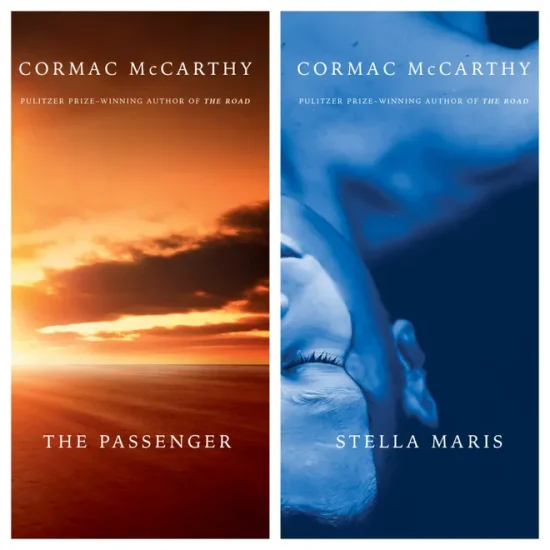
I hope this weekend is treating you well so far, and that you receive the other treatments you need. I hope you’ll forgive me for beginning with an essay about a small part of some books I’ve been reading. Eventually I’ll try to connect those parts to the more extreme forms of heavy metal.
The books are two novels by Cormac McCarthy that were published back-to-back late this year — The Passenger and Stella Maris. The protagonists of the books are a brother and sister, Bobby and Alicia Western, both of them children of a physicist who worked on the creation of the atomic bomb and both them doomed in different ways.
Bobby occupies most of the attention in The Passenger, though the most interesting character is his old friend Long John Sheddan. The Passenger has a rambling, mysterious plot, but the equally rambling and unpredictable dialogues are what kept me reading (which is why Long John is the most interesting character, because of his disquisitions).
You find out pretty early in The Passenger that Alicia has killed herself. She figures in the book through flashbacks in which she is visited by odd characters that we are led to believe are hallucinations, just as we’re led to believe that Alicia was schizophrenic. She was also strikingly beautiful, and a math prodigy (Bobby is brainy too, but not in her league).
Alicia is the main figure in Stella Maris. Indeed, that entire book is a series of transcripts of her discussions with a doctor in a psychiatric facility (named Stella Maris) where she has voluntarily committed herself (not for the first time), though not because she feels any need for “treatment”.
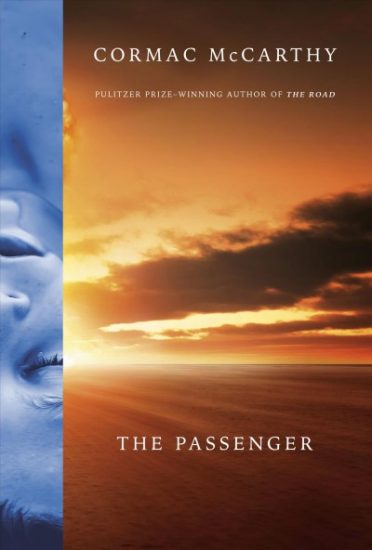
I read The Passenger first (and it should be read first). Now I’m about halfway through Stella Maris. I’ve had to force myself to stop reading it at night, so I can get some sleep and so I have time to reflect on all of Alicia’s mind-boggling musings, which include whirlwind tours through mathematics, philosophy, art, history, and the recurrence of disturbing yet intensely thought-provoking ideas about the nature of “reality” and the fundamental hostility of the world. I didn’t hurry through The Passenger either, but every page of Stella Maris either screws up my mind or makes me think I’m on the brink of some profound realization.
Both books include brief vignettes in which each protagonist separately encounters an oddly garbed older woman named Miss Vivian. Alicia encounters her as a fellow patient during one of her psychiatric commitments. Bobby finds her in a visit to Stella Maris after Alicia’s suicide. It’s not clear that you or I could see or hear Miss Vivian if we were in the same room with her.
In both vignettes Vivian is crying about babies. More precisely, she is crying because babies cry, and because of the way they cry, because they seem so unhappy. In Stella Maris, Alicia explains to her would-be therapist the thoughts that this dialogue provoked in her, thoughts that continued through a dream about babies crying. Alicia has a theory about why babies cry that elaborates on Miss Vivian’s own instincts:
Animals might whimper if they’re hungry or cold. But they don’t start screaming. It’s a bad idea. The more noise you make the more likely you are to be eaten. If you’ve no way to escape you keep silent. If birds couldn’t fly they wouldn’t sing. When you’re defenseless you keep your opinions to yourself.
….
What was startling was the anguish in those cries. I began paying attention. There were always babies at the bus station and they were always crying. And they were not mild complaints. I couldn’t understand how the least discomfort could take the form of agony. No other creature was so sensitive. The more I thought about it the clearer it became to me that what I was hearing was rage. And the most extraordinary thing was that no one seemed to find this extraordinary. Except for Miss Vivian…. The rage of children seemed inexplicable other than as a breach of some deep and innate covenant having to do with how the world should be and wasn’t. I understood that their raw exposure to the world was the world.
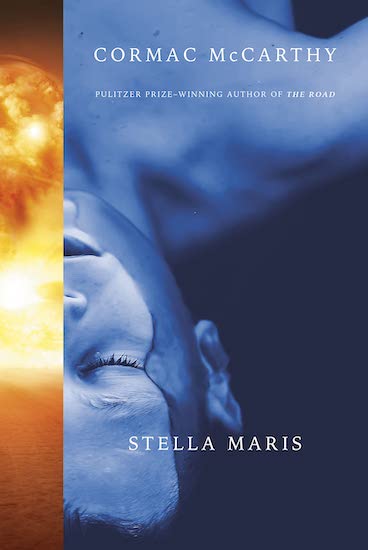
Alicia’s psychiatrist astutely asks how a baby could possibly know how the world should be, but of course Alicia has already considered that: “A child would have to be born so. A sense of justice is common to the world. All mammals certainly. A dog knows perfectly well what is fair and what is not. He didn’t learn it. He came with it.”
Alicia poses her own follow-up question: “At what age in a child’s life does rage become sorrow?” The therapist doesn’t answer but wonders aloud why that should happen, and Alicia answers: “The injustice over which they are so distraught is irremediable. And rage is only for what you believe can be fixed. All the rest is grief. At some point they get this.”
The psychiatrist comes back to the idea of children born with an innate sense of justice, and finds it a difficult concept to sell. Alicia responds:
“They have little else. A fear of falling. Loud noises. A love of the breast. Everything else is potential. The schema is there but nothing has arrived. Things which are innate and well formed are rare. And primitive. And necessary. When you hear a sobbing child say it’s not fair you are always hearing the truth.”
Yes, these are tough concepts to sell. Maybe they require a degree of mystical indulgence that many of us (including me) resist. They are also quite dark, but so is Alicia’s fully articulated view of the world as a place where ultimately she no longer wishes to live.
It may be that one reason the discussion I’ve quoted has stuck with me, indeed haunts me, is that it seems to encapsulate the main themes of both books in their entirety. But that’s a subject for another day.
What does this have to do with the more extreme forms of heavy metal?
Can’t you guess?
The bands aren’t babies, nor are we, but the rage over the world not being what it should be persists, even if the rage may be fruitless (Alicia has an extremely logical mind, and although it’s illogical to experience fury over things we can’t change, we still feel it). The sorrow persists too. Sometimes those feelings lead to madness. Other emotions also fuel the music we listen to, but they are subsidiary to those two. Examples follow.
P.S. I’ve read everything Cormac McCarthy has written. He writes dialogue (not to mention plots) that can be very frustrating. Much of the time, it’s the kind of speech that you think no one would ever utter in “the real world”. Sometimes it even seems to make no sense, at least no sense you might perceive without thinking really hard about the sentences. But he also has a way of writing that can be stunning, literally stunning, forcing a person to stop and stare, and then to read the language over and over again.
McCarthy is 89 years old now. These two novels might be, probably are, the last things for public consumption he ever writes. They have that feeling, of a great writer consciously reaching the end. To receive nothing more from him would be depressing, but I doubted we would even have these two, so who knows?
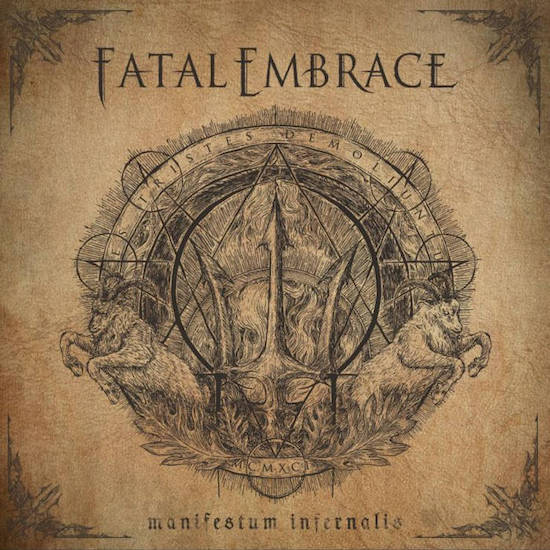
FATAL EMBRACE (Sweden)
Whatever malign force raises old bands from the dead remains strong and devoted to its dark work. The latest resurrection that I’ve noticed is the Swedish group Fatal Embrace, whose second album Manifestum Infernalis will be released by Black Lion Records on March 24th of next year. It will follow the band’s first full-length, Shadowsouls’ Garden, by a mere 26 years and four months, with no other releases by the band in between the two.
Interestingly, it doesn’t appear that the band’s line-up has changed very much over that quarter century of silence. Even more interesting is “Empyreal Doom“, the first single from the new album which surfaced last week through a lyric video.
Metal-Archives classifies the band’s ’90s music as melodic death metal, but a significant black metal influence comes through in the frantically seething tremolo runs, the caustic shrieks, and the infernally imperious symphonic overlays within “Empyreal Doom“. The song packs a hefty punch too, but also segues into a beautifully sorrowful interlude, whose melody continues to ring as the ferocious power swells again, and becomes more intensely distressing in its mood.
https://snd.click/FatalEmbraceMI
https://fatalembraceblacklion.bandcamp.com/album/manifestum-infernalis
https://www.facebook.com/fatalembrace
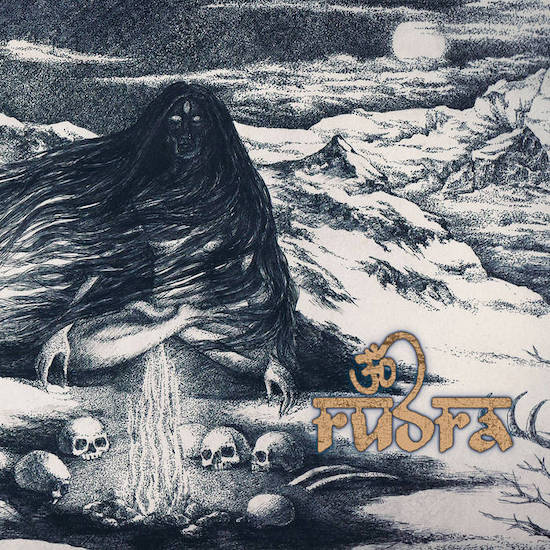
RUDRA (Singapore)
Rudra are another group whose roots go back to the early ’90s, but they never had a silent period. On December 22nd, Awakening Records will release their 10th album, Eight Mahavidyas.
As the name suggests, the new record is a concept album. Although a bit of googling reveals that the Mahavidyas were ten Hindu goddesses, the eight figures honored through the new album appear to be historical figures, eight women drawn from ancient times up until the 18th century “who broke stereotypes and became outstanding teachers of wisdom”.
Based on the name of the song “Auspicious Widow” and a bit more googling based on the lyrics, it appears that its subject is Aavudai Akkaal (Shenkottai Aavudai Akkaal), who was a child widow, a revered mystic, and a Tamil poet who live during the 17th or 18th century.
The drumming in the song fires on all cylinders, and there are feelings of grim bleakness and fiery determination in the swirling and jolting riffs. As expected, Rudra also bring in piercing and spellbinding melodies (and a gripping guitar solo) that connect with the Hindu mysticism in the song’s subject matter. You’ll also see that there’s sorrow in the morphing melodies, providing a counterpoint to the track’s turmoil and turbulence, and a kind of desolate but solemn reverence in the song’s spoken-word conclusion.
https://awakeningrecordscn.bandcamp.com/album/eight-mahavidyas
https://www.facebook.com/RudraBand
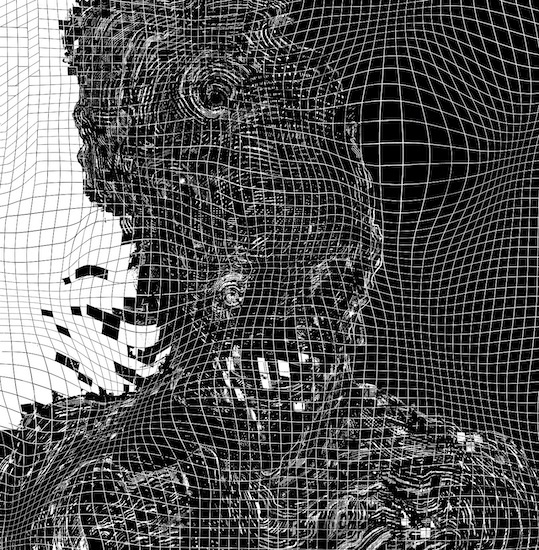
ENTROPIA (Poland)
Entropia‘s age isn’t quite as advanced as that of the first two band’s in today’s collection, but it’s still significant, with four albums in their discography released over a 10-year period. The newest of those is Total, which is set for release on March 17th by Agonia Records.
I’ve been following and writing about Entropia since 2015, and even premiered their second album Ufonaut here in 2016. Of that one I wrote: “Wearing the trappings of black metal, progressive metal, and post-rock, Entropia deliver one high-intensity thrill ride after another”.
The band’s distinctive inventiveness has been admirable, with each album representing a further evolution in their stylistic amalgamations, and their new song “Retox” shows no signs of retrenchment. Its crashing chords, twisting arpeggios, mercurial drum patterns, and synth-spawned sheens prove to be strangely captivating, but as bright as those textures are, something feels awry. There’s a mounting sense of confusion and even despair in these hallucinatory permutations, and unmistakable torment in the vocalist’s throat-ruining screams.
The song may tie your grey matter in knots, but you may find it damned hard to get it out of your head, especially the instrumental conclusion that begins with a dire yet fascinating guitar solo.
(Thanks to Rennie from starkweather for linking me to this new song.)
http://entropia-total.pl/
https://orcd.co/24byyve
https://www.facebook.com/mourningentropia
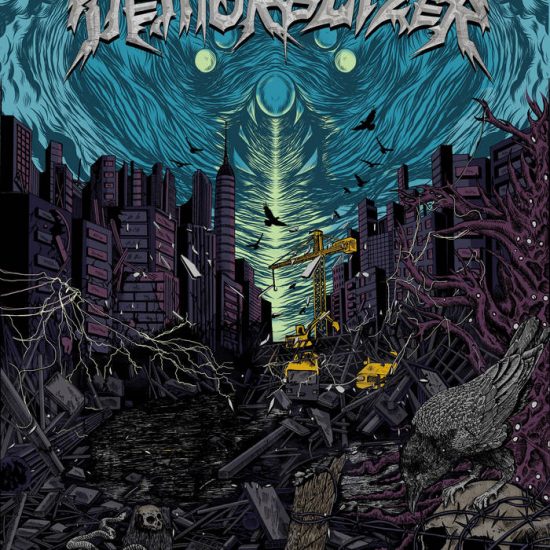
DEMORALIZER (Netherlands)
Given the themes that gueled my selections for today’s collection, how could I resist a song named “This World is Suffering“? Obviously, I couldn’t, but it wasn’t just the name that explained this pick.
The lyrics express the gloating of some malignant power over its ruination of humankind through pestilence, famine, and war, but the suffering of the victims seems to be captured in the music as well. The song inflicts a thunderous pile-driver of a beating, and both the maniacal riffing and the tandem vocals sound authentically enraged and sadistic. But there comes a point when the drums strike a rocking beat, paving the way for an extended guitar solo that seems effervescent — a feeling soon shut down by renewed physical punishment and terrorizing fretwork contortions.
“This World Is Suffering” is one of six songs on Demoralizer‘s debut EP, which was released in October and is also named This World Is Suffering. All the other songs are individually available on Bandcamp. I’ve also included a video for one of those other tracks, a discharge of merciless, full-throttle rampage and traumatic thuggery called “Alive To Die” (which also includes its own mood-shifting guitar solo).
https://demoralizerdeathmetal.bandcamp.com/track/this-world-is-suffering
https://open.spotify.com/album/7p0rXjbuWTrwxmsjnSBaIK?si=k_GwfjudQz6BDz0-JuvdRQ
http://www.facebook.com/demoralizerdeathmetal
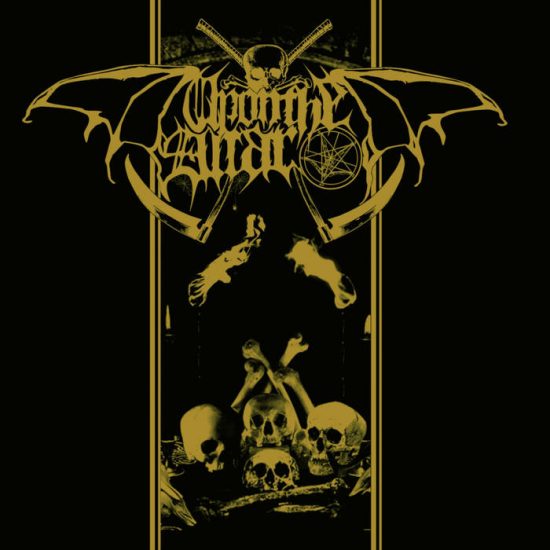
UPON THE ALTAR (Poland)
The preceding song in today’s collection made reference to the suffering of the world, but this next one takes suffering to even more horrifying depths. Entitled “Theotokos Wept“, it’s the last of seven tracks on this Polish band’s side of a September 2022 split album with Deathepoch. That split followed the band’s debut album Absid ab Ordine Luminis, released in 2021.
The music here is slow and suffocating, made with chords that are encrusted with toxic distortion, a granite-heavy undulating bass, and the occasional appearance of diseased tremolo vibrations. The echoing vocals, which range from guttural sewage to vampyric snarls, are hideous, leaving no doubt that Upon the Altar‘s mission is to devour all light.
Upon the Altar recently released a video of their performance of this same song in Katowice at the P23 stage on November 12th of this year. It’s a more extended version of the song, filmed in a way that makes the visuals murky and menacing, and if anything, the sound (especially the gasping vocals) is even more horrifying.
(I owe Rennie thanks for pointing me to this song and video too.)
https://uponthealtar.bandcamp.com/album/upon-the-altar-deathepoch-split-album
https://www.facebook.com/uponthealtarofficial/
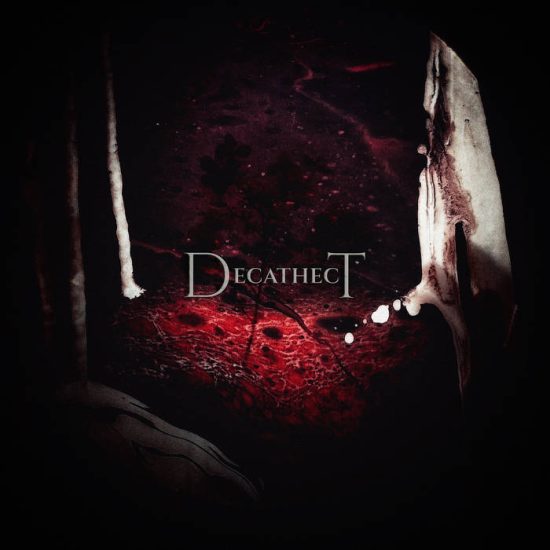
DECATHECT (Germany)
You’ll have noticed by now that today’s collection has included some individual tracks from records that have been fully released, without any attempt by me to review those records as entire works. This is solely due to constrictions on my time, rather than any suggestion that the balance of the records aren’t worth hearing. I’m about to do this again.
The next song I’ve chosen, accompanied by a captivating video, is the fourth of six tracks on this band’s self-titled debut record, which was just released a few days ago. This particular song caught my eye because it’s a collaboration between Decathect‘s two members (Niclas Grobolsek and Patrick Suchostawski) and Winterherz from Waldgeflüster, who contributed vocals on the track (and if you don’t know who he is, for shame).
From the first instant, the fury and ferocity in the music is intense enough to cause gasps, but there’s a feeling of desperation in the music too. Lots of other things happen in the song after that startling start. Announced by a guitar that sounds like a die-stamp machine hammering its marks on sheet metal, the band lead us through a jazzy guitar instrumental — a spellbinding interlude cut off at the knees by another daunting outburst of raging and roiling intensity.
The twists and turns continue, as the band provide a prog-minded guitar solo, riveting drum fills, a soft, melancholy instrumental interlude, and a bout of gritty singing backed by shimmering guitars and head-hooking drum patterns.
Definitely a head-spinner of a song, and a good way to introduce yourself to an equally head-spinning album.
(Thanks to Miloš for linking me to this.)
https://decathect-official.bandcamp.com/album/decathect
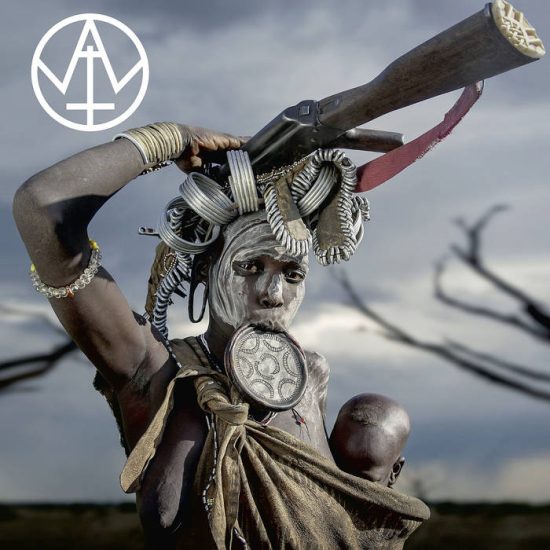
AFRICAN IMPERIAL WIZARD (Angola)
And here’s one more regrettable example of me picking one song to highlight rather than a description or review of the whole record it appears in. It’s also an example of me throwing in a curveball at the end of these round-ups.
A few words are in order about what African Imperial Wizard is. I can’t personally vouch for the accuracy of the information I’m about to provide, just repeating what I’ve read. What I’ve read is that this collective “was secretly founded in the northern districts of the old low town of Luanda, the day after the ceasefire between the government of the Popular Liberation Front of Angola and the rebels of the National Union for Independence was signed”. Here’s more of what I found:
The music producers immediately focused on the struggle against the colonial military oppression, the pillage of a tyrannized people turned into slaves for centuries and the vengeance of a young generation in perdition.
They planned on conveying their actions with ethnic moods drowned in violent powerful beats directed under a martial symphony.
African Imperial Wizard symbolizes the expression of the discomfort left by the ashes of the longest civil war known in Africa, fed by deep and profound social, cultural and regional divisions within the Angolan society.
The message that appears on the Bandcamp page for their new album NZINGA MBANDE is completely devoted to the necessity of continuing war and the utter destruction of all remnants of colonialism in Africa. The intensity of the rage in the words is palpable.
The song I chose is the one that opens the album, “Sundjata“. The reverberations of the female singer’s wailing voice are captivating, and haunting. The darting of the keyboards and the percussive ticks are intriguing. But the distorted beats in the low end are mauling, even though they’ll get you moving. Eventually, tribal drums add to the music’s eclectic combination of ingredients.
It’s a gripping blend of very old and very modern sensations that in conjunction are spellbinding, primal, and harrowing, especially when a cacophony of disturbed voices come in.
If you let the player continue to run, you’ll find sorrow in some of this music too — in fact, right away, in the funereal horn-like strains and agonized voices of “Shaka KaSenzangakhc“, though the chants and the percussive ingredients in that song eventually take on a martial cast, like the stamp of drums and spears.
I hope you’ll listen to the rest of the album, because it’s a hell of a dark trip in which each song offers something new. I’ve also included a video for a shortened version of “Sundjata“, and I’ll include that. I’m not clear why it depicts African men fighting each other. Perhaps it’s a form of training for fighting oppressors.
(Thanks again to Miloš for linking me to this.)

Love the intro, Islander – very well done – and also very happy to see you like Cormac McCarthy. That dude is totally cvlt! And agree we are lucky to have gotten some final works out of him. Those books are on the old wish list – looking forward to reading them over the holidays.
Thanks very much JR. I hope you enjoy these books when you get to them.
Thank you for the introduction Islander. As a parent, I needed to confront my own assumptions about what a baby’s cry might mean in different circumstances, and to respond in a way that respected our son’s need to express and release emotion.
What you write also relates to how so many mental health issues stem partly or mostly (or sometimes even wholly) from the immense challenges of staying open and compassionate to suffering, to not burying our head in the sand, to acknowledging (and staring in the face) the utter psychosis of our socioeconomic and power-based systems… to stay open, compassionate and find ways to deal with anger, despair, rage, grief (over what is being lost, devalued, invisiblised…). And the quadrupled immensity of this challenge when one lacks power to meet fundamental needs, to have space for action, to find a tribe based on mutual care and healthy responsibilities to each other.
Metal helps to keep me sane in the face of all this, and to not bury my head in the sand. It helps me to cope with reality, and to stay open.
Thank you also for recommending Cormac McCarthy’s books. They sound such pertinent books for him to end his writing journey with.
It is a daunting time to be a parent. It always is. But I compare the time of my own kids’ childhood to today (they are adults now), and I can’t fathom how I would have handled it. McCarthy’s view of the world in these two books is incredibly bleak, even though it rings true, but I don’t think they are good emotional nourishment for most people. They do seem like a farewell from an 89-year-old, without much hope for the future. Metal, as you see it, as a way to stay sane and persevere, is a more useful tonic for what ails us.